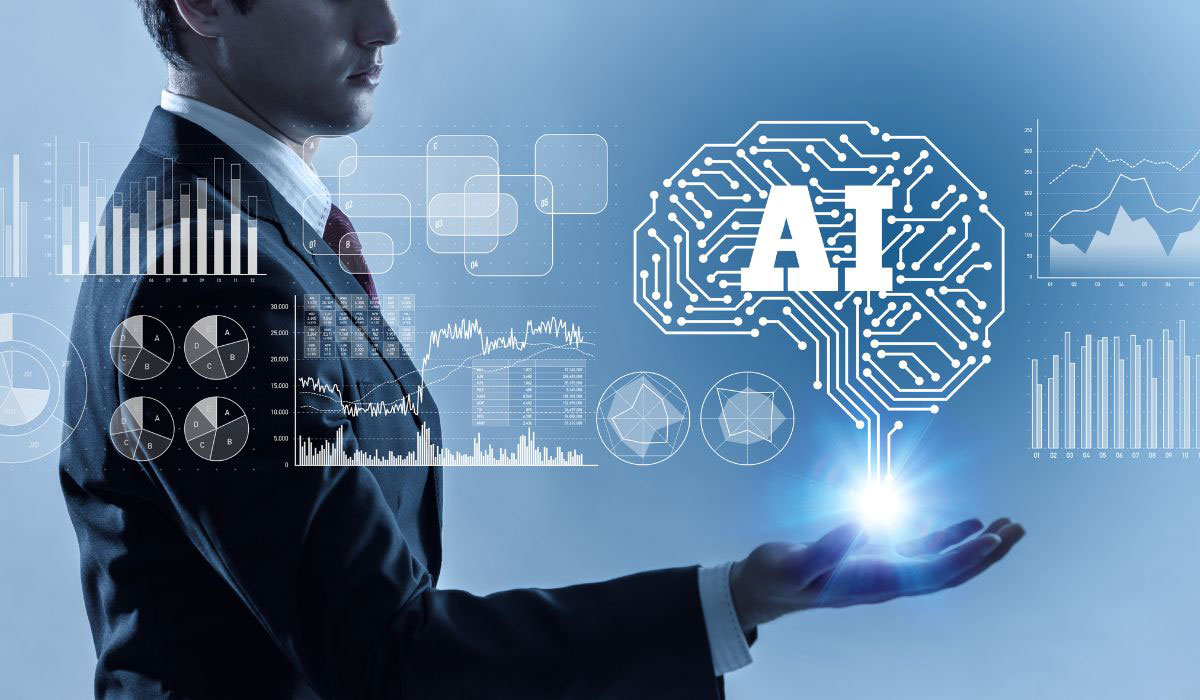Artificial intelligence (AI) has changed from a future idea to a force that is changing many parts of society. It has changed many fields, from healthcare to finance, because it can act like a human brain, handle huge amounts of data, and learn from its mistakes. The blog talks about how AI affects various areas and shows how big its effects and possibilities are.
AI in Engineering
Optimizing Design and Manufacturing
AI is revolutionizing the engineering field by optimizing design and manufacturing processes. Generative design software uses AI algorithms to explore all possible configurations of a design solution, providing engineers with innovative and efficient designs. This leads to reduced material usage, lower costs, and improved performance of engineered products. Additionally, AI-driven simulation tools allow engineers to test and validate designs in virtual environments, identifying potential issues and optimizing performance before physical prototypes are built. This not only accelerates the design cycle but also reduces the cost and time associated with iterative physical testing.
Predictive Maintenance
In industrial engineering, AI plays a critical role in predictive maintenance. Machine learning models analyze data from sensors embedded in machinery to predict equipment failures before they occur. This proactive approach reduces downtime, extends the lifespan of machinery, and lowers maintenance costs. Furthermore, AI can prioritize maintenance tasks based on the severity of predicted issues, optimizing resource allocation and ensuring critical machinery receives timely attention. Predictive maintenance also enhances safety by preventing catastrophic equipment failures, thereby protecting workers and reducing liability.
Quality Control
AI enhances quality control in manufacturing by using computer vision to inspect products for defects. AI-powered systems can detect imperfections that are invisible to the human eye, ensuring higher product quality and consistency. This application is particularly valuable in industries like automotive and electronics, where precision is crucial. Moreover, AI-driven quality control systems can provide real-time feedback to manufacturing processes, enabling immediate adjustments and reducing the incidence of defective products. By analyzing defect patterns, AI can also help identify root causes, leading to continuous improvement in manufacturing processes.
Autonomous Systems
AI is driving the development of autonomous systems in engineering, such as drones, robots, and unmanned vehicles. These systems can perform complex tasks with minimal human intervention, improving efficiency and safety in various engineering applications. For instance, AI-powered drones are used for inspecting infrastructure, such as bridges and power lines, reducing the risk to human inspectors. In addition, autonomous robots are employed in hazardous environments, such as nuclear power plants and deep-sea exploration, performing tasks that are dangerous or impossible for humans. AI also enables collaborative robots (cobots) to work alongside human workers in manufacturing settings, enhancing productivity and reducing the risk of injury.
Smart Manufacturing and Industry 4.0
AI is a cornerstone of the Industry 4.0 revolution, which integrates smart technologies into manufacturing processes. Smart manufacturing leverages AI to create interconnected systems that communicate and coordinate seamlessly. AI algorithms analyze data from various stages of production to optimize workflows, improve supply chain management, and enhance overall operational efficiency. By integrating AI with the Internet of Things (IoT), sensors, and real-time data analytics, manufacturers can achieve greater agility, customization, and responsiveness to market demands.
Sustainable Engineering
AI contributes to sustainable engineering practices by optimizing resource utilization and reducing waste. AI-driven design tools can create energy-efficient products and systems, while AI algorithms in manufacturing processes minimize material waste and energy consumption. In environmental engineering, AI helps monitor and manage natural resources, predict environmental impacts, and develop sustainable solutions for waste management, water treatment, and pollution control. By fostering sustainability, AI supports engineering efforts to address global challenges such as climate change and resource depletion.
Human-AI Collaboration
AI enhances human capabilities in engineering by providing advanced tools and insights. Engineers can leverage AI to process and analyze large datasets, uncovering patterns and trends that inform decision-making. AI-powered design assistants can suggest improvements, automate repetitive tasks, and facilitate innovation, allowing engineers to focus on creative and strategic aspects of their work. This collaboration between humans and AI fosters a more efficient, innovative, and productive engineering environment.
Software Development
AI is transforming software development by automating code generation and testing. AI-driven tools like GitHub Copilot use machine learning to assist developers by suggesting code snippets, automating repetitive coding tasks, and identifying potential bugs. This accelerates the development process, reduces errors, and improves code quality. Additionally, AI can analyze existing codebases to recommend optimizations and ensure adherence to best practices.
Cybersecurity
AI enhances cybersecurity by detecting and responding to threats in real-time. Machine learning algorithms can identify unusual patterns and anomalies in network traffic, signaling potential cyberattacks. AI-driven security systems can also automate responses to threats, such as isolating affected systems and blocking malicious activities. This proactive approach significantly reduces the risk of data breaches and enhances overall cybersecurity resilience.
Data Analytics
AI revolutionizes data analytics by enabling more sophisticated and accurate data processing. Machine learning algorithms can analyze large datasets to uncover hidden patterns, trends, and correlations. This helps organizations make data-driven decisions, optimize operations, and predict future outcomes. In fields like finance and healthcare, AI-driven data analytics provide valuable insights that drive strategic planning and improve performance.
Natural Language Processing (NLP)
AI’s advancements in Natural Language Processing (NLP) are transforming how computers understand and interact with human language. NLP applications include chatbots, virtual assistants, and sentiment analysis tools. These AI systems can comprehend, interpret, and generate human language, enabling more natural and efficient interactions between humans and machines. NLP is also used in language translation, automated summarization, and content generation.
Machine Learning and AI Research
AI is at the forefront of advancing its own field through machine learning and AI research. Researchers use AI to develop new algorithms and models, pushing the boundaries of what AI can achieve. This includes advancements in deep learning, reinforcement learning, and neural networks. AI-driven research is also exploring ethical and interpretability aspects, ensuring that AI systems are transparent, fair, and accountable.
Robotics
AI is integral to the development of intelligent robots capable of performing complex tasks autonomously. In robotics, AI enables machines to perceive their environment, make decisions, and execute actions. Applications range from industrial robots in manufacturing to service robots in healthcare and hospitality. AI-driven robotics is also advancing in areas like swarm robotics, where multiple robots work collaboratively to achieve common goals.
Conclusion
The intersection of AI and various fields is driving unprecedented innovation and efficiency. As AI continues to evolve, its applications will expand, further transforming industries and improving the quality of life. Embracing AI’s potential while addressing ethical and practical challenges will be crucial in harnessing its benefits for a better future.
In conclusion, AI’s integration into different fields underscores its transformative potential. From healthcare and finance to education, transportation, retail, entertainment, agriculture, engineering, and computer science, AI is reshaping industries and offering new possibilities. As we continue to explore and develop AI technologies, it is essential to consider ethical implications and ensure that these advancements benefit society as a whole.
Chitkara University is integrating Artificial Intelligence (AI) across its engineering programs by embedding AI-related subjects into the curriculum and encouraging interdisciplinary projects that provide hands-on experience with AI applications. Courses on machine learning, neural networks, and data science ensure students gain a comprehensive understanding of AI technologies. The university’s dedicated research centers and labs enable faculty and students to engage in cutting-edge AI research, exploring new methodologies and applications in various fields such as robotics, healthcare, and smart cities.
Also, read this blog post: The impact of artificial intelligence on various industries
Strong industry collaborations play a crucial role in Chitkara University’s approach to AI education. These partnerships facilitate internships, workshops, and collaborative projects, allowing students to work on industry-relevant AI projects and gain practical skills. The use of AI-powered tools and platforms enhances the learning experience, providing personalized learning paths and real-time feedback. Regular workshops, seminars, and guest lectures by AI experts keep students updated with the latest developments and trends in AI.
Additionally, Chitkara University emphasizes ethical AI practices, ensuring students understand the societal impacts of AI technologies. Participation in AI competitions and hackathons fosters creativity and practical problem-solving skills, while the expertise of the university’s faculty brings the latest AI knowledge to the classroom. Through these comprehensive efforts, Chitkara University prepares its engineering students to excel in the rapidly evolving technological landscape.






